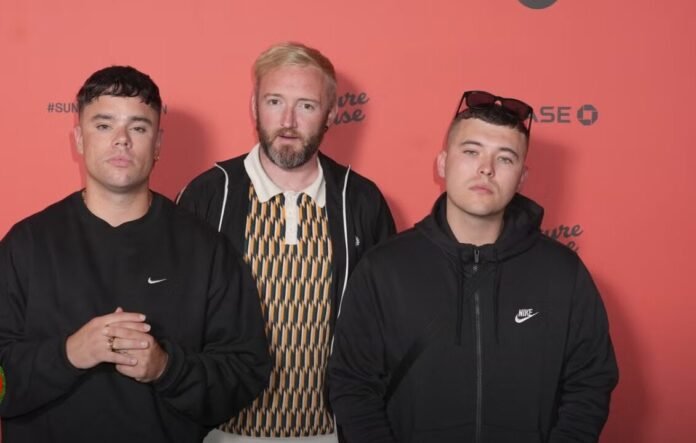Liam O’Hanna, aka Mo Chara, charged over Hezbollah flag display at Kentish Town gig; band denies supporting terrorist groups despite police probe.
Liam O’Hanna, 27, a member of Belfast-based rap group Kneecap, has been formally charged with a terrorism offence linked to the display of a Hezbollah flag at a gig in London last November. The Metropolitan Police announced the charge on Wednesday, stating that O’Hanna, who performs under the stage name Mo Chara, will appear at Westminster Magistrates’ Court on June 18.
The incident occurred on 21 November 2024 at the O2 Forum in Kentish Town, north-west London. The charge relates specifically to the public display of a flag in support of Hezbollah, an organisation proscribed as terrorist in the UK. The Metropolitan Police’s Counter Terrorism Command began investigating after becoming aware of an online video of the event on April 22.
Following a thorough investigation, the Crown Prosecution Service authorised the charge against O’Hanna. He was charged by postal requisition, a legal process allowing the accused to be summoned to court by mail.
This development follows earlier police statements revealing that Kneecap had come under scrutiny by counter-terrorism officers due to videos allegedly showing the band’s members making inflammatory statements, including calls for the deaths of MPs and vocal support for Hamas and Hezbollah.
Kneecap, a Belfast rap trio known for their politically charged lyrics, has vehemently denied supporting any terrorist organisations. The group issued a public apology last month to the families of murdered MPs but claimed that footage of their performances had been “exploited and weaponised” by critics. They emphasised that they have “never supported” Hamas or Hezbollah, both designated terrorist groups in the UK.
The controversy has led to the cancellation of several Kneecap gigs across the UK, reflecting heightened tensions around political expression and security concerns. Conservative Party leader Kemi Badenoch has publicly called for Kneecap to be banned from performing, while other politicians have urged festival organisers to remove the band from the Glastonbury Festival line-up.
The case adds to ongoing debates about freedom of expression, the limits of artistic licence, and the responsibilities of artists amid the complex political landscape of Northern Ireland and the wider UK. Kneecap’s music often tackles issues of identity, conflict, and political struggle, which supporters argue is part of a legitimate cultural discourse.
However, law enforcement and politicians maintain a firm stance against any perceived promotion or glorification of terrorism. The charge against O’Hanna marks a significant moment in the policing of artistic and political expression tied to controversial symbols and messages.
The wider public and fans await the court proceedings, which will test the boundaries of protest and performance in the context of UK counter-terrorism law. Meanwhile, the band continues to face both legal and reputational challenges as this case unfolds
